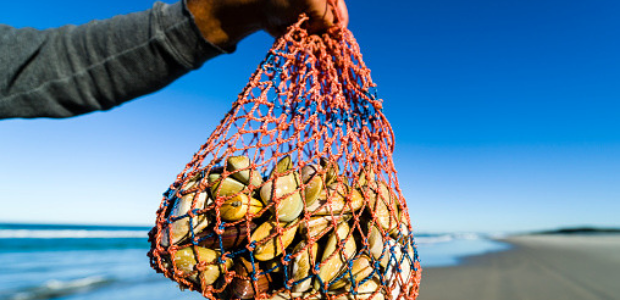I recently learned about the Great Canadian Maple Syrup Heist and it got me thinking about South African foods and edible treasures that have been stolen and what the black market is like for such foods.
What started out as a light-hearted look at what foods are stolen, took me down a dark rabbit hole of organised crime and environmental disregard:
Between 1987 and 2000 Arnold Bengis owned and ran a fishing company called Hout Bay Fishing, illegally fishing and exporting crayfish to the US to an estimated value of R1.29 billion (yes you read that right) and decimating the local crayfish population. Bengis was ordered to pay R479 million in the New York Southern District Court and sentenced to 4 years in prison. This amount was later reduced to just over R100 million (to be paid to South Africa via the Jersey Islands and the US Department of Justice). It is unclear if the 81-year-old has ponied up the cash and he currently lives in Israel, seemingly escaping any consequences for his actions.
2. Macadamia nuts
The most expensive nut on the market, is being funnelled into Zimbabwe or sold to syndicates in Mpumalanga at a rate of about R200 million per year. These illegally packed nuts (when not handled properly) are at high risk of Salmonella contamination and have the highest recall rate, of all the nuts, by the USA’s Food and Drug Administration. Machete-wielding thieves have targeted Zimbabwean farms, leading to safety concerns for farmers and farm workers.
3. Abalone
The perlemoen black market is moving about R628 million of South African perlemoen per year and appears to be run by a bunch of dim-witted individuals. One couple was arrested in Mowbray when they reported a burglary (of abalone) from their home, SAPS located approximately R2.8million worth of abalone on the premises. Another man was arrested in Swellendam for driving a stolen vehicle AND carrying about R3.8million perlemoen. Several processing plants have accidentally outed themselves by accidentally blowing themselves up with exploding gas tanks used in the drying of the perlemoen. Abalone-kingpin Morne Blignaut was sentenced to 20 years in prison for an estimated R30 million rand perlemoen poaching industry.
Interested in other dodgy dealings? Don’t miss watching Border Security on CBS Saturdays and Sundays at 17:50!
4. Beehives
The high price of honey has villains mixing in syrup to make it go further, but more recently whole hives are being stolen resulting in R100 000’s worth of losses to beekeepers. 90% of plants are pollinated by bees and the relationship between beekeepers and fruit growers is essential for both of their survival. Unscrupulous thieves take the whole hive, cut out the comb and harvest the honey to sell effectively destroying the hive.
WATCH: South African honey fraud and what you need to know
The minute food is loaded into a truck for transport it becomes a target for racketeers. Chocolate, energy drinks and a machine for changing best before dates. These elements make up the business of hijacking a chocolate truck (belonging to Nestle). Also targeted are trucks with frozen meat exiting the Durban harbour, beer and soft drink trucks. The full impact of these sorts of crimes are difficult to estimate, but it does contribute to fraudulent food items and black-market meat which may have been incorrectly stored and therefore dangerous to eat.If you see any illegal marine poaching activities contact the Green Scorpions on 0800 205 005 (put that number in your phone right now, so you can be quick on the draw if you ever need to)
Any other illegal activities can be reported to SAPS or anonymously to Crimeline.
Images via Getty Images/Unsplash

